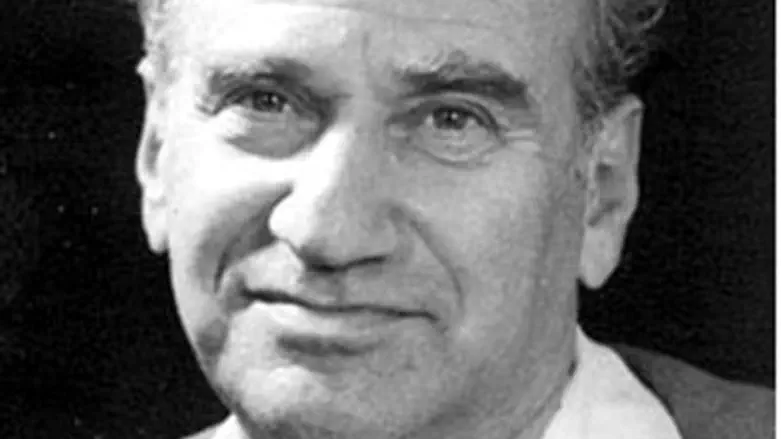
Long-time politician and educator Aryeh 'Lova' Eliav passed away on Sunday. He was 89.
Eliav was a senior member of the Labor party for many years, and his political views were leftist, including opposition to religious legislation and to the construction of Jewish homes in Judea and Samaria.
Eliav was born in Moscow and arrived in Israel, then British Mandatory Palestine, with his family at the age of three. At age 15 he joined the Haganah Jewish defense organization, and in 1941 he volunteered for the British army and fought in World War II.
After the war he worked to bring Jewish survivors to Israel. He met his future wife while commanding a ship of Jewish refugees headed to Israel's shores.
Back in Israel he worked in settlement, bringing Jewish immigrants to the Lachish region, and assisting in the establishment of the city of Arad. Between 1958 and 1960 he served in Israel's embassy in Russia.
Eliav entered the political scene in 1965, winning a seat in the sixth Knesset with the (first) Ma'arach party, the predecessor of today's Labor. He left Labor a decade later due to his opposition to Jewish settlement in Judea and Samaria – settlement which Labor supported.
He served as a member of Ya'ad, and then of Sheli, but returned to Labor in 1979 and remained in the party until 1992.
After leaving politics, Eliav worked as a teacher and volunteered. His volunteer activities took him as far as Iran and Nicaragua, where he assisted in rescue efforts following earthquakes. He established the youth village in Nitzana, and won the Ben Gurion prize in honor of his many achievements.
Eliav was a senior member of the Labor party for many years, and his political views were leftist, including opposition to religious legislation and to the construction of Jewish homes in Judea and Samaria.
Eliav was born in Moscow and arrived in Israel, then British Mandatory Palestine, with his family at the age of three. At age 15 he joined the Haganah Jewish defense organization, and in 1941 he volunteered for the British army and fought in World War II.
After the war he worked to bring Jewish survivors to Israel. He met his future wife while commanding a ship of Jewish refugees headed to Israel's shores.
Back in Israel he worked in settlement, bringing Jewish immigrants to the Lachish region, and assisting in the establishment of the city of Arad. Between 1958 and 1960 he served in Israel's embassy in Russia.
Eliav entered the political scene in 1965, winning a seat in the sixth Knesset with the (first) Ma'arach party, the predecessor of today's Labor. He left Labor a decade later due to his opposition to Jewish settlement in Judea and Samaria – settlement which Labor supported.
He served as a member of Ya'ad, and then of Sheli, but returned to Labor in 1979 and remained in the party until 1992.
After leaving politics, Eliav worked as a teacher and volunteered. His volunteer activities took him as far as Iran and Nicaragua, where he assisted in rescue efforts following earthquakes. He established the youth village in Nitzana, and won the Ben Gurion prize in honor of his many achievements.
